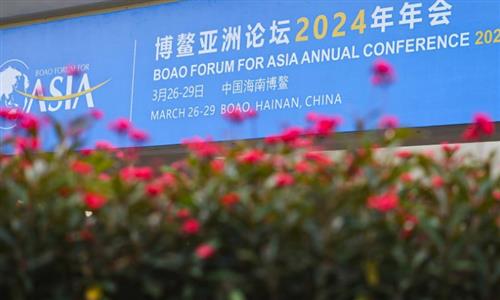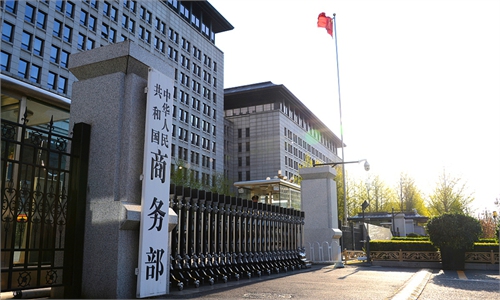
Illustration: Liu Xidan/GT
A spokesperson of China's Ministry of Commerce (MOFCOM) on Saturday responded to concerns over China's export controls on rare earths, which contain two major points: First, China's export controls on rare earths and related items align with international practices. Second, China reviews export license applications for rare earths and related items in line with laws and regulations, has approved a number of compliant applications, and will continue to strengthen the approval process for such applications. These two points are interconnected, and focusing solely on one while neglecting the other would result in an imbalanced interpretation.In recent days, some US officials and media outlets have consistently raised concerns about the rare-earth issue. A June 5 article in The Wall Street Journal claimed that China was supposed to have eased export controls on rare-earth magnets during the 90-day US-China tariff truce, but it has "slow-walked license approvals for magnets" without providing solid evidence. On the same day, The New York Times claimed that China's real motivation for imposing export controls had nothing to do with military applications but was part of China's retaliation for the US government's decision to impose much higher tariffs on imports from China and dozens of other countries.
These claims by US media outlets are clearly an attempt to sway public opinion ahead of the new round of China-US trade talks in London, deliberately stirring up confusion.
A Chinese Foreign Ministry spokesperson made it clear earlier that China's export control measures are in line with international practices, non-discriminatory, and not aimed at any specific country.
Export controls are an important measure that countries adopt to safeguard their national security, and they are a standard practice. To meet the evolving global landscape, China enacted the Export Control Law in 2020. The country established a comprehensive export control system guided by the Export Control Law, which covers dual-use items, military products, nuclear materials, and other goods, technologies and services related to safeguarding national security and interests and fulfilling international non-proliferation obligations. It ensures full coverage of controlled items, applicable entities, and regulatory processes, and it also outlines mechanisms for supervision and legal liability, pushing the national export control governance to become more sophisticated and modernized. This is in stark contrast to the US approach of unilateral sanctions based on an over-stretched concept of national security.
Items related to rare earths have dual-use attributes for both military and civilian purposes, and implementing export controls on them aligns with international practices. China is legally enforcing export controls on rare-earth-related items to better safeguard its national security and interests, as well as to fulfill international obligations such as non-proliferation. Some US media outlets have been sensationalizing the rare-earth issue, criticizing China's export controls that conform to international norms, merely attempting to exert pressure on China through public opinion to gain more benefits in US-China economic and trade negotiations.
Such assumptions by the US expose the fact that it is exactly the US itself that is politicizing and weaponizing economic and technological matters, which has led some in the US to become addicted to this approach.
So, who is actually abusing export controls? On April 9, China released China's Position on Some Issues Concerning China-US Economic, Trade Relations. The white paper states that "in recent years, the US has generalized the concept of national security, exercised excessive long-arm jurisdiction, and continued to politicalize, weaponize, and instrumentalize export controls, imposing sanctions and suppressive measures on various industries and enterprises of other countries. Such practices have severely obstructed normal economic and trade exchanges worldwide and disrupted the stability of global industrial and supply chains…The US measures are counterproductive and detrimental."
Since the release of the "Joint Statement on China-US Economic and Trade Meeting in Geneva," the US has continued to abuse export control measures. While US Treasury Secretary Scott Bessent and US Trade Representative Jamieson Greer reached an agreement with China in Geneva, another US department - the Department of Commerce - tightened controls on Huawei chips the next day.
According to multiple media reports, amid US export curbs, more than six US ethane cargo ships originally destined for China have stalled around the US Gulf Coast. US authorities now require exporters to obtain an export license before shipping ethane to China. Ethane is a major component of natural gas and can be used to produce ethylene, which is a primary raw material for plastics. Although the US Department of Commerce claims that "exports of ethane and butane pose an unacceptable risk of military end-use in China," industry analysts generally believe that the possibility of ethane being used for military applications is virtually nonexistent.
The US seeks to strike a fatal blow against China in the trade war, but at the same time it does not want China to retaliate by cutting off critical resources that the US relies on. The US wishes to cause harm to China without damaging its own military, aerospace, and civilian sectors. This is a typical example of American-style thinking and bullying tactics.
It is understandable that China will strengthen the approval process for compliance applications in accordance with the law and regulations, ensuring that strategic resources are approved for export only under conditions that do not jeopardize China's own security. China will not base its approval on US hegemonic threats. If the US wishes to pressure China into expanding approvals according to its own will, despite the urgent desire of the US, this goal will not be realized.
Rare earths are part of the economic and trade relationship between China and the US, but compared with rare earths, the China-US trade relationship is much broader. The two countries share strong economic and trade complementarity. A stable trade relationship between the two major economies is crucial for the global economy. If Washington can demonstrate a spirit of mutual openness, continued communication, cooperation, and mutual respect in its future actions, and if China-US trade relations move toward healthy, stable, and sustainable development, wouldn't it naturally lead to the progress of trade negotiations? Rare-earth cooperation between the two countries will continue to develop as long as it follows rational and compliant frameworks.
The author is former president of the research institute of China's Ministry of Commerce. bizopinion@globaltimes.com.cn



